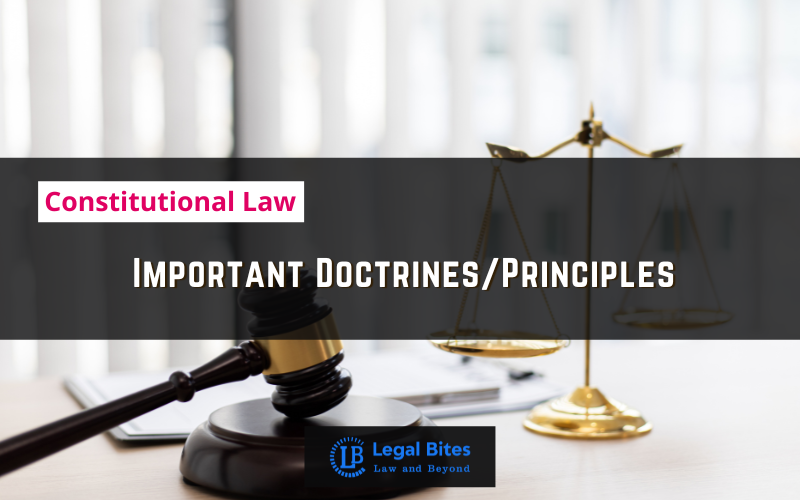What is meant by inherent jurisdiction of the civil court?
Question: What is meant by the inherent jurisdiction of the civil court? [JJS 2017] Find the answer to the mains question only on Legal Bites. [What is meant by inherent jurisdiction of the civil court?] Answer: Original jurisdiction is jurisdiction inherent in, or conferred upon, to a court of the first instance. In exercise of the inherent jurisdiction… Read More »
;
Question: What is meant by the inherent jurisdiction of the civil court? [JJS 2017] Find the answer to the mains question only on Legal Bites. [What is meant by inherent jurisdiction of the civil court?] Answer: Original jurisdiction is jurisdiction inherent in, or conferred upon, to a court of the first instance. In exercise of the inherent jurisdiction by the Civil Court, the court of first instants decides suits, petitions, or applications. Inherent jurisdiction allows a court to...
Question: What is meant by the inherent jurisdiction of the civil court? [JJS 2017]
Find the answer to the mains question only on Legal Bites. [What is meant by inherent jurisdiction of the civil court?]
Answer:
Original jurisdiction is jurisdiction inherent in, or conferred upon, to a court of the first instance. In exercise of the inherent jurisdiction by the Civil Court, the court of first instants decides suits, petitions, or applications. Inherent jurisdiction allows a court to control its own process and to control the procedures before it. This power stern not from any particular statute or legislation, but rather from inherent powers vested in a court to control the proceedings brought before it.
Section 9 of the Civil Code of Procedure, 1908 deals with the jurisdiction of the civil courts in India. In the case of K Narayanan v K Sreedevi, AIR 1990 Ker 151, the court had held that in all types of civil disputes the civil courts have an inherent jurisdiction as per Section 9 of the CPC unless a part of that jurisdiction is carved out from such jurisdiction, expressly or by necessary implication, by any statutory provision and conferred on any other tribunal or authority.
Hence, the jurisdiction of Civil Courts is inherent to hear into civil matters unless it is expressly or implied excluded by a statute. The burden of proof for the exclusion of the jurisdiction of the court is on the party contending it.
The obligation of Courts to ensure justice in every case, whether or not it is backed through an express provision, makes these inherent powers of the Court a necessary feature of the Indian judicial system. However, inherent powers are those which are vested in Court even without a specific codification.
The Court has the liberty to apply them to prevent abuse and to advance justice. If there are defined and separate sections of the law to address a given issue, then the Courts do not have the authority to invoke inherent powers. These powers can be invoked to aid the provisions of the law but not to override or bypass express provisions.
Therefore, inherent powers are required so that administrative restrictions do not cause injustice to occur.
Important Mains Questions Series for Judiciary, APO & University Exams
- Constitutional Law Mains Questions Series Part-I
- Constitutional Law Mains Questions Series Part-I
- Constitutional Law Mains Questions Series Part-II
- Constitutional Law Mains Questions Series Part-IV
- Constitutional Law Mains Questions Series Part-V
- Constitutional Law Mains Questions Series Part-VI
- Constitutional Law Mains Questions Series Part-VII
- Constitutional Law Mains Questions Series Part-VIII
- Constitutional Law Mains Questions Series Part-IX
- Constitutional Law Mains Questions Series Part-X



